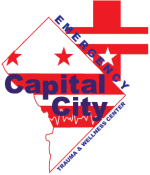10 Ways to Volunteer Your Time for Mental Health
JCheang
Thu, 05/06/2021 – 09:38
This article was originally posted on IDONTMIND’s journal and has been cross-posted here with permission. Read the original article here.
There are so many ways you can volunteer your time to mental health! Not only is volunteering a way to support other people, it can also boost your mental health along the way. Research has shown that when you help other people, the reward center of your brain is kick-started. You get a rush of endorphins, making you feel happier. Volunteering and acts of kindness can also decrease stress, increase your self-esteem, and can add meaning to your life.
There are so many opportunities for you to get involved, and all it takes is a little bit of compassion and a little bit of your time. Here are a few ways that you can volunteer your time for mental health.
Give back to your local community
Boosting someone’s quality of life directly impacts their mental health. When you work with local organizations, you’re improving your community piece by piece and contributing to the overall health of the people in your area. And that’s when it can make the biggest difference.
1. Lean into your skills and interests.
When you’re starting to look for volunteer opportunities, invest in finding the right match for you. Lean into the skills that you already have.
If you’re a people person, volunteer at a nursing home.
If you like working with animals, volunteer at a local animal shelter or get your pet certified to be a therapy animal.
If you like organizing, sorting food donations at your local food bank could be perfect for you.
If you like reading, volunteer at your local library.
If you like the outdoors, join a local park cleanup.
There are so many options, so find what works best for you! If you need some help narrowing things down, try using Volunteer Match to find opportunities near you.
2. Work with your local Mental Health America affiliate.
Mental Health America (MHA) has an Affiliate Network with over 200 locations in 42 states and over 10,000 volunteers. And MHA affiliates may have volunteer opportunities in your community. Use the Find An Affiliate tool to find the organization closest to you.
Make some noise
3. Create social change.
Do Something is a youth-led nonprofit focused on creating social change. There are movements that you can join in a huge range of mental health campaigns. When you join a campaign, it can be as simple as signing a petition or sharing an uplifting message.
4. Share your story.
When you open up about your mental health, you make it easier for other people to do the same. The IDONTMIND Journal is a collection of helpful articles and inspiring personal stories on mental health. Consider taking some time to share your story and submit it to be published in the IDONTMIND Journal. Reading it may give someone the courage they need to reach out.
Help someone who’s struggling
5. Volunteer with Crisis Text Line
Crisis Text Line is a text line (available 24/7) and can be really useful in any moment of pain or struggle in your life. The text line is powered by volunteer Crisis Counselors who work remotely. When you become a Crisis Counselor, you answer texts from real people in crisis situations. After going through a 30-hour, free training you can provide help to people when they need it most. Learn more about how to become a Crisis Counselor.
6. Volunteer with the National Suicide Prevention Lifeline
The Suicide Prevention Lifeline is there to help calm you down and work to keep you safe in one of the most difficult moments in your life. The lifeline is made up of a network of local crisis centers, and it relies on trained volunteers to provide support to the people that call in. You can find the closest local crisis center to you and contact them to see if there are any volunteer opportunities available.
Be there for someone in your life
7. Check in with the people you love.
Sometimes the best way to really get involved in mental health is just by checking in with your friends and family. Try IDONTMIND’s Just Checking In. It’s ten simple questions to get a conversation going about mental health and to make sure the people in your life are taking care of their minds.
8. Try actively listening.
It sounds simple, and maybe you aren’t necessarily “volunteering,” but you’re making a huge impact in someone’s life just by being there and supporting someone that’s struggling with their mental health. Check out Listen Up from the IDONTMIND Journal to learn more about how to actively listen to someone that’s being open and honest with you about their mental health.
Speak up on social and share resources
9. Share mental health screening.
Mental Health America (MHA) offers a free mental health screening tool on its website, available 24/7. It’s a simple series of questions to help you check on your mental health. You can also think of it as a routine check-up for your mind. Just by spreading the word, sharing screening on social media, and talking to your friends and family about it, you’re sharing a really valuable resource that can make a huge impact on someone’s mental wellbeing. If you’re short on time, this is one of the fastest, easiest ways to get involved in mental health.
10. Follow mental health-based accounts.
When you repost content or send a post to someone, you’re supporting mental health awareness. It’s one simple step in fighting the stigma around mental illness and continuing to open up the conversation about mental health. Check out IDONTMIND’s Instagram, Facebook, and Twitter and Mental Health America’s Facebook, Instagram, and Twitter.







